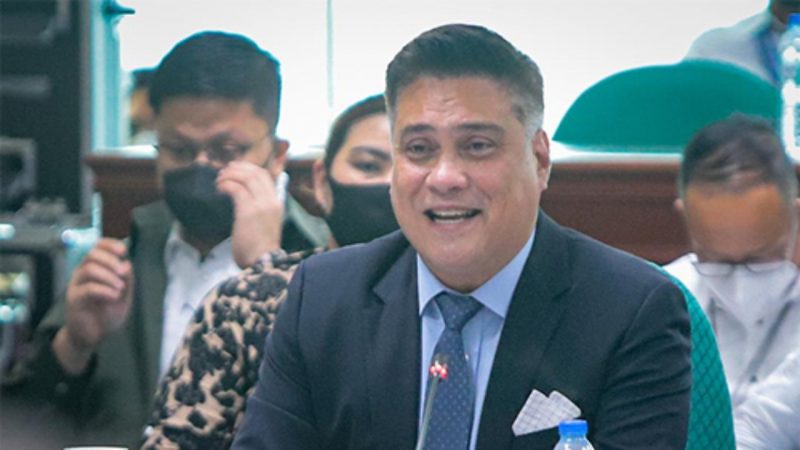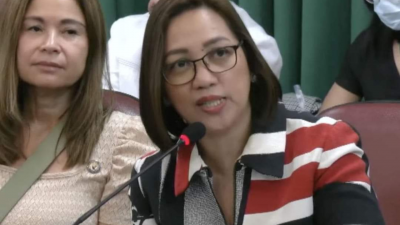“The People’s Senate is very pleased with the enactment of four measures we believe will positively impact the lives of Filipinos socially, economically and culturally. Naniniwala kami na magdudulot ang mga ito ng kaginhawaan at kaunlaran para sa marami nating kababayan.”
Senate President Juan Miguel “Migz” Zubiri made this statement today, Monday, 28 August 2023, as President Marcos Jr. signed into law yesterday the following measures:
- Republic Act No. 11958 entitled “An Act Rationalizing the Disability Pension of Veterans”
- Republic Act No. 11960 entitled “OTOP Philippines Act”
- Republic Act No. 11961 or the “An Act Strengthening the Conservation and Protection of Philippine Cultural Heritage …”
- Republic Act 11959 entitled “Regional Specialty Centers Act.”
“Sa titulo pa lang ng mga bagong batas na ito, makikita na natin na may direktang benepisyo ito sa mamamayang Pilipino. These laws have been exhaustively deliberated in the halls of the 19th Congress to meet the increasing demands of the changing times and enhance public service to Filipino citizens,” Zubiri said.
“We thank the President for signing these measures into law, and I commend our senators for doing a good job in deliberating these measures and making sure the intended benefits indeed favor their target beneficiaries. Rest assured that the People’s Senate is committed to passing more legislation that will benefit the Filipino people,” the Senate President added.
He said that these four laws are impactful measures because they increase disability pensions of veterans, strengthen the One Town, One Product Program, push for further conservation of the country’s cultural heritage, and, finally, pave the way for regional specialty hospitals.
For one, Zubiri explained, RA 11958 will upgrade the benefits of veterans with disabilities whose rates remained unresponsive to the needs of today since the law granting it was enacted over 30 years ago.
Under the new law, the rates were adjusted as follows: from P1,000 to P4,500 if the disability is rated from 10% to 30%; from P1,100 to P5,300 if the disability is rated from 31% to 40%; from P1,200 to P6,100 if the disability is rated from 41% to 50%; from P1,300 to P6,900 if the disability is rated from 51% to 60%;
From P1,400 to P7,700 if the disability is rated from 61% to 70%; from P1,500 to P8,500 if the disability is rated from 71% to 80%; from P1,600 to P9,300 if the disability is rated from 81% to 90%; from P1,700 to P10,000 if the disability is rated from 91% to 100%, with the addition of P1,000 for the spouse and each unmarried minor children from the previous rate of P500.
If the veteran reaches the age of 70 and has not been granted benefits from the law, he will be deemed disabled and will get a monthly pension of P1,700.
RA 11960 or the OTOP Philippines Act, meanwhile, aims to empower and support local industries, especially in rural areas, by encouraging entrepreneurship and promoting local products as a means of economic growth.
It mandates the Department of Trade and Industry (DTI) to craft a six-year, national OTOP strategic development plan within a year. The government is also mandated to provide product promotion and market access for OTOP beneficiaries.
RA 11961, on the other hand, seeks to strengthen the protection and conservation of the country’s cultural heritage through cultural mapping, amending Republic Act No. 10066 or the “National Cultural Heritage Act of 2009.”
According to the new law, cultural mapping refers to the identification, recording, and use of cultural resources of communities.
Among the salient points of the measure is the creation of a Philippine Registry of Heritage, where all cultural properties and natural properties of cultural significance of the country shall be registered.
The fourth new law, RA 11959, seeks to establish specialty centers in government hospitals in every region all over the country.
It seeks to decongest national specialty centers located in Metro Manila and bring these specialty centers closer to the people. It also provides the criteria for the creation of specialty centers in a region, which includes, but is not limited to: evidence of health needs of demands; service capabilities of the hospital and geographic proximity; and availability of health human resources.
The Regional Specialty Centers Act is principally authored and co-sponsored by Zubiri himself with Sen. Bong Go as the principal sponsor. It is a fulfilled campaign promise he made during the last national elections. (ai/mnm)







